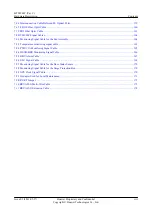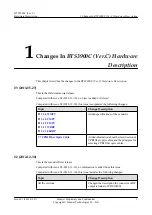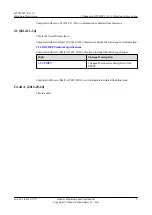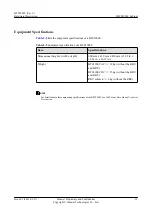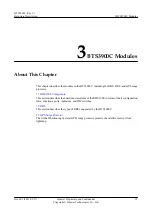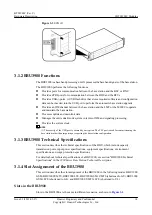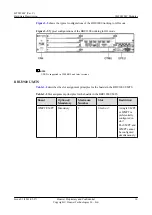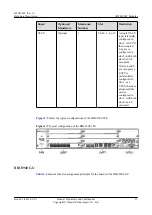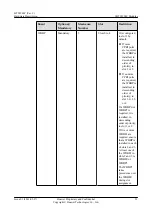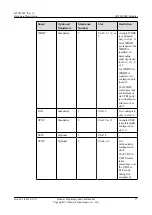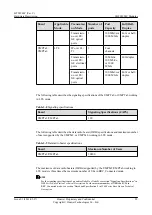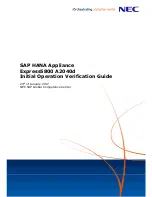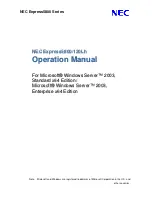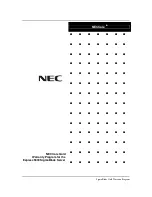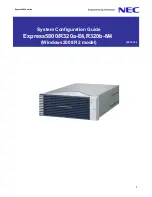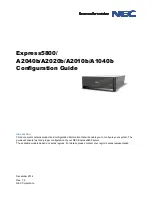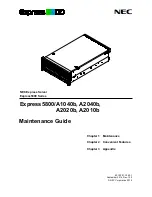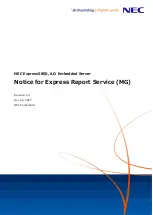
Figure 3-3
ESN (2)
3.1.2 BBU3900 Functions
The BBU3900 is a baseband processing unit. It processes the baseband signals of the base station.
The BBU3900 performs the following functions:
l
Provides ports for communication between the base station and the BSC or RNC.
l
Provides CPRI ports for communication between the BBU and the RFUs.
l
Provides USB
(1)
ports. A USB flash drive that stores required software and configuration
data can be inserted into the USB port to perform the automatic base station upgrade.
l
Provides an OM channel between the base station and the LMT or the M2000 to operate
and maintain the base station.
l
Processes uplink and downlink data.
l
Manages the entire dual-mode system in terms of OM and signaling processing.
l
Provides the system clock.
NOTE
(1) The security of the USB port is ensured by encryption. The TST port is used for commissioning the
base station rather than importing or exporting the base station configuration.
3.1.3 BBU3900 Technical Specifications
This section describes the technical specifications of the BBU, which include capacity,
transmission ports, input power specifications, equipment specifications, environment
specifications, and surge protection specifications.
For details about technical specifications of a BBU3900, see section "BBU3900 Technical
Specifications" in the
3900 Series Base Station Technical Description
.
3.1.4 Slot Assignment of the BBU3900
This section describes the slot assignment of the BBU3900 in the following modes: BBU3900
GSM, BBU3900 UMTS, BBU3900 LTE, BBU3900 GSM+UMTS (shortened to GU), BBU3900
GSM+LTE (shortened to GL), and BBU3900 UMTS+LTE (shortened to UL).
Slots in the BBU3900
Slots in the BBU3900 are the same in different scenarios, as shown in
BTS3900C (Ver.C)
Hardware Description
3 BTS3900C Modules
Issue 03 (2013-05-27)
Huawei Proprietary and Confidential
Copyright © Huawei Technologies Co., Ltd.
14

